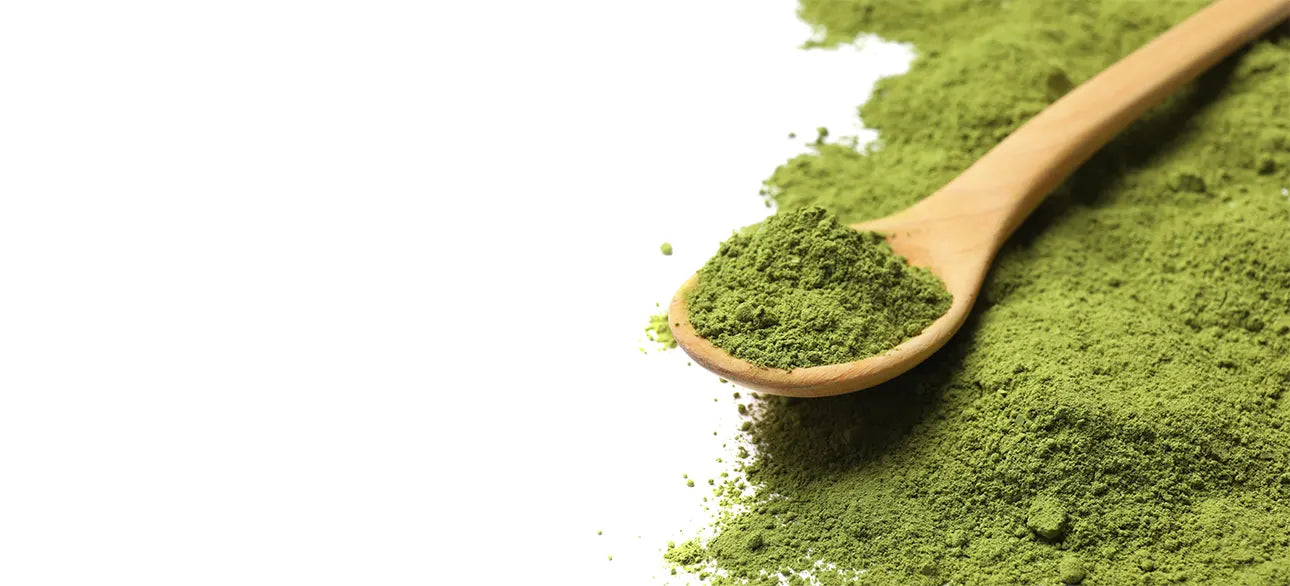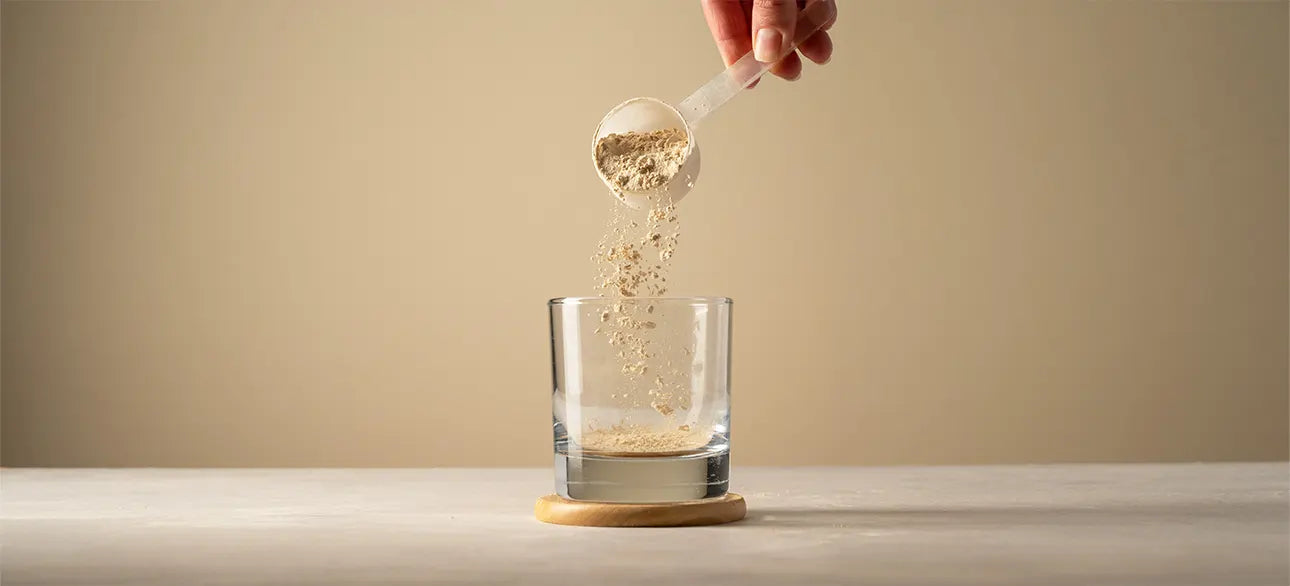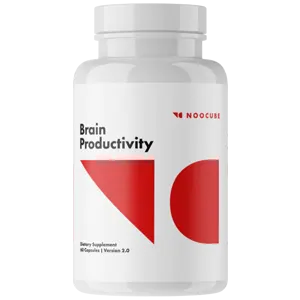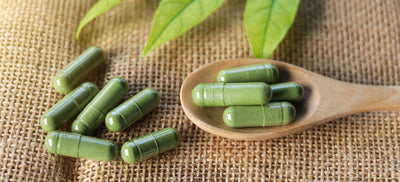Nerve Fresh Review: Can It Support Cognitive Health?
Nerve Fresh claims to support nerve health and cognitive function. But does it really work for improving mental clarity and brain performance? Find out what this supplement has to offer.
Advertiser Disclosure: We independently select all the products. If you click through links we provide, we may earn a commission.

Key Takeaways
- Nerve Fresh uses natural ingredients like passionflower and prickly pear to support nerve health and reduce discomfort.
- Results are gradual, with some not noticing improvements after months of consistent use.
- It is generally well-tolerated, with mild digestive discomfort reported by some users initially.
- The product focuses on calming nerves but lacks robust cognitive or regenerative benefits.
- Best suited for those seeking mild nerve relief rather than comprehensive cognitive enhancement.
- Available exclusively through the official website and popular retail sites
It starts small - a little forgetfulness here, a restless night there.
Maybe it’s the tingling in your hands or the way your thoughts feel scattered. You brush it off, but deep down, you wonder - is this just part of life now?
As you struggle to find the answers, we’d like to assure you that this is common. It’s no wonder so many people are searching for natural ways to support their brain and nerve health.
One name that everyone seems to swear by is nerve fresh, a supplement that claims to calm overactive nerves and promote overall wellness. What else can it do? Is this it?
In this review, we’ll dig into its ingredients, effectiveness, and value to help you decide if it’s worth your time (and your trust).
Ingredient Analysis
 Nerve Fresh Supplement Facts
Nerve Fresh Supplement Facts
Nerve Fresh combines a blend of natural ingredients, each selected for its potential to support nerve health and overall wellness.
The formula includes Passionflower, Prickly Pear, Marshmallow Root, Corydalis, and California Poppy. While some of these ingredients have promising research backing their benefits, others lack sufficient evidence to support their claims.
Here’s a deeper look into each of the key ingredients;
Passionflower
 passionflower
passionflower
Passionflower (Passiflora incarnata) has long been used in traditional medicine for its calming and sedative properties.
A 2010 study suggests that it may help reduce nerve excitability by increasing levels of gamma-aminobutyric acid (GABA) in the brain, a neurotransmitter that calms the nervous system.
This mechanism could be particularly beneficial for those experiencing neuropathic pain or heightened nerve sensitivity.
Additionally, passionflower has demonstrated anti-inflammatory properties, which may help alleviate nerve inflammation, a common contributor to neuropathic discomfort.
Passionflower’s calming and anti-inflammatory effects are well-supported by research, making it a valuable addition to nerve fresh.
We approve of this ingredient.
According to Catherine Peterson, MD- Neurosurgeon
Passionflower is a powerful natural remedy, proven to reduce nerve excitability and inflammation, offering significant relief for those with heightened nerve sensitivity or chronic pain
During our research, we came across a video by Dr. Eric Berg DC, where he explains how Passionflower promotes brain health.
Prickly Pear
 Prickly Pear
Prickly Pear
Prickly pear (Opuntia ficus-indica), a cactus native to the Americas, is rich in antioxidants and anti-inflammatory compounds.
These properties are crucial for protecting nerve cells from oxidative stress, which can lead to damage and dysfunction.
A 2014 study highlighted its neuroprotective effects, showing that it could help prevent nerve cell damage and support overall nerve health.
Moreover, prickly pear has been shown to regulate blood sugar levels, which is particularly beneficial for users with diabetic neuropathy. By stabilizing glucose levels, it may reduce the risk of further nerve damage caused by prolonged hyperglycemia.
Prickly pear’s antioxidant and blood sugar-regulating properties make it a strong candidate for supporting nerve health.
We approve of this ingredient.
Marshmallow Root
 Marshmallow Root
Marshmallow Root
Marshmallow root (Althaea officinalis) is traditionally used for its soothing properties, particularly for the digestive and respiratory systems.
It contains mucilage, a gel-like substance that can coat and protect tissues, potentially offering some relief for irritated nerve endings.
However, there is limited scientific evidence directly linking marshmallow root to significant nerve health benefits.
While its anti-inflammatory properties may provide some indirect support, the lack of robust clinical studies makes it difficult to confirm its efficacy for neuropathy or nerve regeneration.
We, therefore, don’t approve of this ingredient.
Corydalis
 Corydalis
Corydalis
Corydalis (Corydalis yanhusuo) is a traditional Chinese herb known for its analgesic properties.
It contains alkaloids, such as dehydrocorybulbine (DHCB), which have been shown to block pain signals in the nervous system.
This makes it a potential natural alternative to conventional pain relievers for neuropathic pain.
However, while corydalis shows promise, its effects are primarily focused on pain relief rather than nerve regeneration or long-term nerve health.
Plus, high doses may cause side effects such as dizziness or nausea.
So, while effective for pain relief, corydalis does not address the root causes of nerve damage, limiting its overall utility in a nerve health supplement.
We, as a result, don’t approve of this ingredient.
California Poppy
 California Poppy
California Poppy
California poppy (Eschscholzia californica) is often used for its sedative and pain-relieving properties. It contains alkaloids that may help reduce nerve pain and promote relaxation.
However, its effects are largely symptomatic, providing temporary relief rather than addressing the underlying causes of nerve dysfunction.
Furthermore, there is limited clinical evidence supporting its efficacy for long-term nerve health or regeneration.
Its primary benefits seem to lie in its ability to improve sleep and reduce anxiety, which, while helpful, are not directly related to nerve repair.
We don’t approve of this ingredient.
Quick Decision Guide: Nerve Fresh vs Our Top-Rated Brain Supplement (CogniUltra®)
Table of Content |
Nerve Fresh |
Cogniultra |
|---|---|---|
Product |
 |
|
Rating |
||
Price |
$59.99 | $36.75 – $46.55 |
User Review |
Mixed | Mostly Positive |
Product Effectiveness |
75% | 96% |
Certification |
GMP certified | GMP Certified |
Return Policy |
60-day money-back guarantee | 60-day money-back guarantee |
Manufacturer |
nervefresh | Flawless Bloom |
Dosage |
one or two capsules daily | 2 Capsule per day |
Availability |
Online only |
Online only |
Made in USA |
Yes | Yes |
| Read Review❯❯ |
We Tried Nerve Fresh
 We Tried Nerve Fresh
We Tried Nerve Fresh
We, the trial team, decided to give nerve fresh a try, curious about its claims to support nerve health and mental clarity.
Over the course of four weeks, we monitored changes in focus, energy, and overall well-being. An interesting experience, if you ask me
In the first week, there was a noticeable sense of calm. This could be attributed to ingredients like passionflower, known for its soothing properties.
By the second week, mild improvements in sleep quality were evident, likely due to the calming effects of California poppy.
However, when it came to mental clarity and focus, the results were underwhelming. Tasks that required sustained attention felt just as challenging as before.
By the end of the trial, there were no significant changes in cognitive performance or overall brain health. We all admit the product did provide some relaxation benefits, though. However, it didn’t deliver the promised boost to mental clarity and nerve support.
So, we think nerve fresh is decent for temporary relaxation but lacks the ingredient quality and effectiveness needed for cognitive support.
Its impact on brain health and mental clarity is minimal. We wouldn’t recommend it for those seeking comprehensive benefits.
One of the highly talked-about products, Nervovive, claims to offer cognitive support. But does it truly deliver on its promises? Read our Nervovive review to find out if it’s effective or not.
Side Effects & Safety
Nerve Fresh is generally well-tolerated, with most users reporting no significant side effects.
Its plant-based formula, featuring ingredients like passionflower and prickly pear, is designed to be gentle on the body.
However, a few users have mentioned mild issues such as a bitter aftertaste, slight stomach discomfort when taken on an empty stomach, or mild drowsiness, particularly in those sensitive to calming herbs.Similar side effects have been observed with NerveCalm. If you're considering trying it, be sure to read a detailed NerveCalm review to determine if it's the right choice for you.
The supplement is free from stimulants, GMOs, and artificial additives, which makes it it suitable for a wide range of users, including those with dietary restrictions.
However, it’s not recommended for pregnant or breastfeeding women, individuals under 18, or those with known allergies to its ingredients.
As with any supplement, consult a healthcare provider before use, especially if you’re on medication or managing chronic conditions.
Real Customer Reviews
Feedback from platforms like Amazon and Trustpilot provides a mixed yet insightful perspective.
On Amazon, nerve fresh holds an average rating of 3.4 out of 5 stars, based on 20 reviews. While some users praise its effectiveness, others express dissatisfaction with the product's quality and return policy.
One user shared,
Very very happy with my results. My daily discomfort and fatigue are gone, and I feel revitalized. Initially, I researched the ingredients and began purchasing them one by one, but then I realized it was too expensive and time-consuming. Especially not knowing if the quality would be the same as nerve fresh. nerve fresh is formulated as if it was tailor-made for my needs, ordering a new supply this week!
Conversely, another customer warned,
Do not buy Not Returnable! I do not have Foot Pain but after taking this for Three Days I had horrible pain in my Right Foot! Was up all night with my foot in warm water & pouring Pain spray on my foot! Was almost ready to go to Emergency Room!! But it finally eased up! $59.00 Dollars for Horrible Night!! Opened both bottles & poured in Trash Can!!!
Where to Find the Best Value
Nerve Fresh is available for purchase on the official website and platforms like Amazon and eBay.
On Amazon, it is priced at $59.99 for a 60-capsule pack, while eBay offers it for $49.00 with free shipping. The official website lists it for $69 per bottle.
Compared to similar best brain health supplements, such as Alpha Lipoic Acid supplements priced around $24.89 for 240 capsules, Nerve Fresh is on the higher end. Always compare ingredients and consult a healthcare provider to ensure the best value for your needs.
Nerve Fresh Vs Cogniultra
To compare the two, we’ll analyze the differences in formulation, ingredients, and price.
Nerve Fresh focuses on calming the nervous system with ingredients like passionflower and prickly pear. While these components offer relaxation and mild nerve support, the formula lacks robust cognitive enhancers.
Cogniultra, on the other hand, is designed for comprehensive brain health.
It includes scientifically-backed ingredients like L-Glutamine, Green Tea Extract, and Vitamin C, which are known for their neuroprotective, cognitive support and cognitive-boosting properties.
In terms of price, nerve fresh is moderately priced but offers limited cognitive benefits. Cogniultra, though slightly more expensive, provides better value with its advanced formulation targeting overall brain health.
For those seeking sharper focus and enhanced mental performance, Cogniultra is the clear winner.
Pros & Cons Nerve Fresh
Pros:
- Includes natural ingredients
- Claims to support nerve health and reduce discomfort
- May provide calming effects and improve relaxation
- Easy-to-use capsule form
- Manufactured in a GMP-certified facility
Cons
- Limited evidence supporting some ingredient benefits for nerve health
- Focuses more on relaxation than cognitive enhancement
- Results may vary significantly between users
- Lacks transparency on ingredient dosages
- May not address the root causes of nerve damage
Conclusion
Nerve Fresh offers a natural approach with calming ingredients, but its impact on cognitive health and nerve regeneration feels limited. While it may provide temporary relief, it lacks the robust formulation needed for long-term benefits.
On the other hand, Cogniultra stands out with its science-backed ingredients targeting memory, focus, and overall brain health. Its comprehensive approach offers more value for those seeking sharper mental clarity and sustained cognitive support.
Ultimately, the choice depends on your priorities. If relaxation is your goal, nerve fresh might suffice. But for a more effective, well-rounded solution, Cogniultra seems to deliver where it matters most.
FAQs
References
Flawless Bloom has strict sourcing policies and relies on primary sources such as medical organizations, academic institutions, governmental agencies, and peer-reviewed scientific journals. Read more about how we ensure our content is accurate, thorough, and unbiased by reading our editorial process.
- Passiflora incarnata L. (Passionflower) extracts elicit GABA currents in hippocampal neurons in vitro, and show anxiogenic and anticonvulsant effects in vivo, varying with extraction method: https://doi.org/10.1016/j.phymed.2010.03.002
- Nopal Cactus (Opuntia ficus-indica) as a Source of Bioactive Compounds for Nutrition, Health and Disease: https://doi.org/10.3390/molecules190914879
- Anti-inflammatory and Anti-oxidative Effects of Phytohustil® and Root Extract of Althaea officinalis L. On Macrophages in vitro: https://doi.org/10.3389/fphar.2020.00290
- The Analgesic Properties of Corydalis yanhusuo: https://doi.org/10.3390/molecules26247498
- Modulatory Effects of Eschscholzia californica Alkaloids on Recombinant GABAA Receptors: https://doi.org/10.1155/2015/617620





























